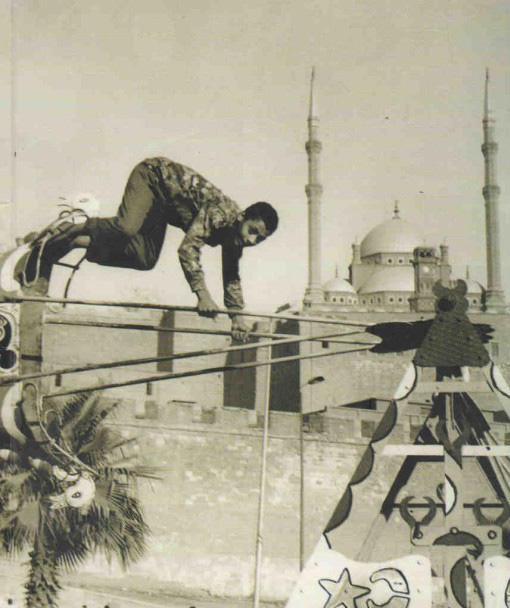
Cairo: City of Sand
By Maria Golia
Reaktion Book, 2004
Egyptians generally perceive themselves as more cultured than their Gulf neighbors, whose joy and astonishment at the oil boom of the 1970s they did not share. Egyptian sentiments may be understood by imagining how Cinderella would have felt if the prince married one of her ugly sisters. The coup de grace is having to work for them, to bear the brunt of their childishly cruel experiments with newfound power and wealth. Unsurprisingly, the reports of Egyptian workers regarding Gulf employers are lurid and legion. The grudge runs so deep that whenever Cairo suffers a heat wave, people complain that it comes from the Gulf, or as popularly expressed, “from one of the mouths of hell to the east.”
The Egyptian relationship with the Saudis is one of exceptional tensions and constraints, in which profiteering, religion, cultural variants, and sour grapes all play a part; their attachment draws its breath from tenderly incubated enmities lying beneath a coverlet of regional cooperation. Although the antagonism is officially downplayed as quarrels among cousins, annual family reunions suggest otherwise. Since Egypt is not subject to the fierce religious restrictions enforced by Saudi Arabia and some other Gulf countries, each year during the holy month of Ramadan, thousands of Gulf tourists flock to Cairo like migratory birds, their women fully veiled and gloved with beaked masks, the men in flowing white galabiyyas and kufiyyas. And in the summer, to cool down, they come again, so that June through August is known as the Arab Season, a time when Gulf pockets are plucked like ripe fruits and the humiliation of formerly Gulf-employed menial workers (often cab drivers) is assuaged.
Although visitors from some Gulf countries are treated with respect, in the eyes of the average Cairene, the Saudis and Kuwaitis are many karmic lives short of redemption. The Kuwaits are considered arrogant and held responsible for the decline in tourism related to the war waged to protect their so-called democracy. Blame is laid at the Saudi door for untoward religious proselytizing. Some say they’re making a bid to re-establish the caliphate, and that, susceptible to Saudi-influenced religious rhetoric, more girls are taking the veil.
The Saudi’s religious pretensions (or ambitions, as they may be) are undermined by the fact that Gulf guests crowd the casinos, restaurants, and bars of Cairo’s five-star hotels. Gulf visitors are not your typical tourists. The closest many get to the Pyramids are the belly-dancing joints on the Pyramids Road where they carouse and stuff the dancers’ sequined bodices with dollars until dawn. It is known, though not much discussed, that some Gulf Arabs acquire Egyptian women during their vacations, usually young ones by means of the urfi, a private Islamic marriage contract, which is one of convenience for the male, dissolved immediately upon his request. Then there are proofs of a darker connivance, of the prostitution of underage girls and boys. For worldly-wise Cairenes, this can only amount to one appraisal, that hypocrisy is the tribute vice pays to virtue — and for the Gulf Arabs, it’s affordable.
There’s a joke about Saudi King Fahd discovering Aladdin’s lamp. He rubs it and a genie appears who asks what the king desires. The king rolls his eyes and says, “Get lost Genie, I have everything.” Hence the colloquial expression describing Arab affluence, “they live above the genies” (3ayish foq il-ginn), despite the fact that many Gulf visitors have hard earned, modest means like any other tourists. This perception of unassailable wealth is magnified by the fact that Gulf Arabs appear to live above the law as well as the jinn. While Cairenes can look forward to the firm hand of a militaristic autocracy for offenses both real and imagined, Saudi nationals flaunt their connections, as in the notorious case of Prince Turk bin Abdel Aziz and his wife, Princess Hind Shams al-Fassi. The princess was convicted of grand theft in February 2001 for neglecting to pay for a million dollar’s worth of jewels. Sentenced in absentia to three years jail with hard labor, she has yet to be apprehended despite the fact that her address is quite well-known. Along with a small army of bodyguards, the al-Turk family occupies the top three floors of the Ramsis Hilton, a dingy postmodern castle-keep overlooking the Nile in Cairo’s Tahrir Square.
When Cairenes refer to offensive Gulf visitors or residents as arabs, it is to distance themselves from something they look down upon, the same way African-Americans may refer disparagingly to unappreciated members of the community as “nigger.” Egyptians use the term arab without a trace of irony, because they consider themselves apart, rooted in a rich heritage they share willingly enough with their various Gulf guests, safe in the knowledge that it belongs to them alone, indeed, is the one thing that no one can take away.
From Cairo: City of Sand, Maria Golia, Reaktion Book, London 2004